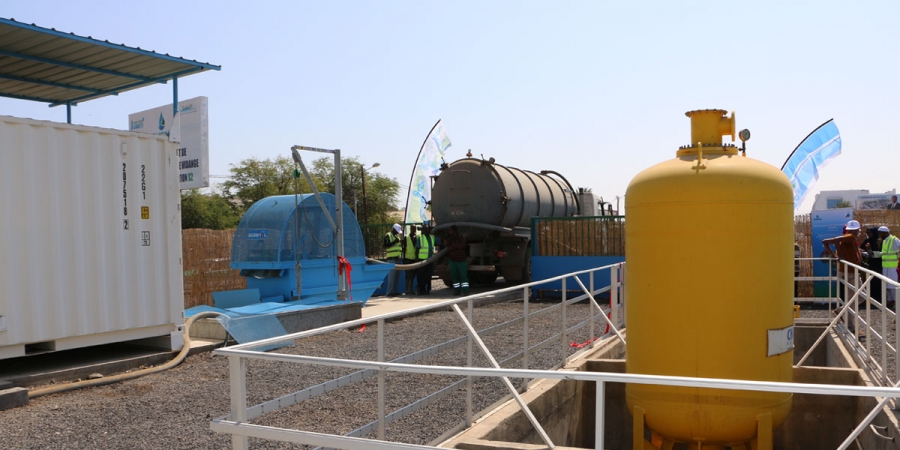In the margins of the 80th session of the Scientific and Technical Council of AfWA, ONEAD (Djibouti's Water and Sanitation Corporation) inaugurated, on Tuesday, November 20, 2018, its first unloading and treatment center for human wastes.
Thanks to the WATA SANITATION SYSTEM solution developed by Valterra Environnement, this centre welcomes emptying trucks that unload their cargoes. A screening is carried out to separate the human waste from any solid elements that may be present and then these wastes are stored in a tank or buffer container where an agitator homogenizes them and prevents the release of odors. It is then simply pumped into a container that contains a screw press that mechanically separates water from suspended solids, becoming quasi-solid sludge that is ejected into a mobile bucket. As for the treated water, which is almost transparent, final treatment solutions are proposed depending on the configuration of the selected site and the discharge standards to be applied.
From a regulatory point of view, stresses Mr. Pierre Terrier, General Manager of Valterra Environnement, "what comes out of our units is considered as waste that we must finish treating or recovering. Sludge mixed with green waste can become products of agricultural interest and can be used as organic amendments. Water can also be treated according to its desired use and become an irrigation product. For this purpose, downstream of our system, we can also provide a containerized solution that works like a WWTP and completes the total purification of water. In absolute terms, we could even make drinking water, but that would be a little complicated from a social acceptance point of view!"
Thus, with this center, ONEAD has just equipped itself with a system for treating urban effluents that are collected in pits and not connected to collective sanitation.

 English
English  Français
Français 
